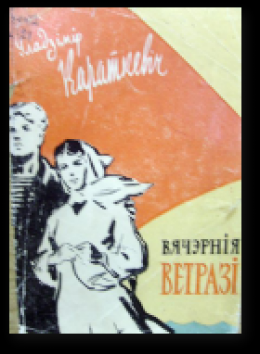
Uladzmr Karatkevch Prezentaciyu
Overview Uladzimir Siamionavich KARATKEVICH, a classic writer of Belarusian literature, a poet, prose writer, playwright, script writer, publicist, translator. He was born 26 November 1930 in the town of Orsha, Vitebsk region, Belarus.
His father, Siamion Tsimafeevich (1887-1959), finished a vocational school in Orsha, earned a living at a young age, worked in the treasury area, was a clerk in the tsarist army, and after the October Revolution served in the finance institutions. His mother, Nadzeia Vasileuna (1893-1977), nee Grynkevich (among her relatives were clergymen, clerks, teachers), after completing the Mariinsky high school in Mogilev taught for a time in school and then was a housewife. The family had three children: son Valery (1918-1941), daughter Natallia (1922-2003), and son Uladzimir. The family was noted for high intelligence.
A graduate of the Second Faculty of Medicine, Dr. Sugitha Sureshkumar, writes an essay about her experiences from Prague and many renowned hospitals in the United Kingdom and the world – with genuine gratitude to the Second Faculty, she adds. Ko zaposli terenca u Valjevu, svaka mu cast.  Ne bih uzeo ni da mi daje dzabe, koliko je ljubazan.
Ne bih uzeo ni da mi daje dzabe, koliko je ljubazan.
In the words of Karatkevich himself, in childhood he was in many ways influenced by his relatives. He was greatly affected by his maternal grandfather, Vasil Yullianavich Grynkevich (1861-1945), a man of rich experience, a witty story-teller, from whom his grandson Valodzia heard many tales and folk legends and learned to love nature. 'The nature phenomena still interest me more than some of the books', admitted Uladzimir Karatkevich in a mature age. The family had a home library. Valodzia learned to read at the age of three and a half and wrote his first verse, according to his relatives, at the age of six. In childhood his talents manifested in a passion for painting that he pursued his whole life and that he had an absolute pitch for music; for a short time he studied in a music school.
In 1938, Valodzia entered a school in Orsha. On completing the third year in summer 1941, he went to Moscow to visit his elder sister Natallia, who studied there in a college of chemical technology. Then the Great Patriotic War began and Valodzia could not return home.
Together with other Moscow children he was evacuated into the Riazan region and then Molotov (Perm) region in the Urals. He made several attempts to run to the front. Later he knew that his parents managed to evacuate and lived in the town of Chkalov (Orenburg) in Russia.
Only in August 1943 his sister brought him to their parents. The family, however, made their part of contribution to the Soviet war effort. In October 1941, Valodzia's elder brother Valery died on the front. Valery's wife Olga, who remained in the Nazi-occupied area, was killed by the occupiers. In summer 1944, Uladzimir Karatkevich together with his mother moved to recently liberated Kiev, where his relatives lived. The short staying in Kiev left a deep imprint in his memory. It was here that he took first interest in history, influenced by the great monuments of the old town on the Dnieper and the excavations carried out by archaeologists.
Later, under the impression of those times, Karatkevich wrote a novella called Listse Kashtanau (The Foliage of Chestnuts). In autumn 1944, the family returned to their home town of Orsha. In late 1946, they began to live in their own house, into which Karatkevich would often come later to create his works.
He would dedicate to this town and its people the verse 'Orsha' expressing his sincere love for the native places that '.probably will not disappear even with my life'. Another hospitable place for his creativity was the house of his relatives in Ragachou built by his grandfather Vasil in 1914. Here he had a separate room into which he would often come to find a piece of mind, and brought his friends and colleagues. In Ragachou he designed and wrote many of his famous works.

The importance of these places for Karatkevich is even sometimes compared with what Boldino was for Pushkin. In 1949, Uladzimir Karatkevich finished a secondary school and entered the Department of Russian Philology at the Taras Shevchenko State University in Kiev. He was interested not only in literature (classics of world literature, the Ukrainian, Russian, Polish and Belarusian authors) but was also keen on history, primarily Belarusian. Here he got acquainted with many works on the national liberation uprising of 1863-1864 that had long interested him. According to the family legend, one of Karatkevich's descendants - Tamash Grynevich (Grynkevich) - was shot in Ragachou for participating in the uprising. In Kiev, Uladzimir Karatkevich continued to write poetry in Belarusian and Russian and tried his hand in Ukrainian and Polish.